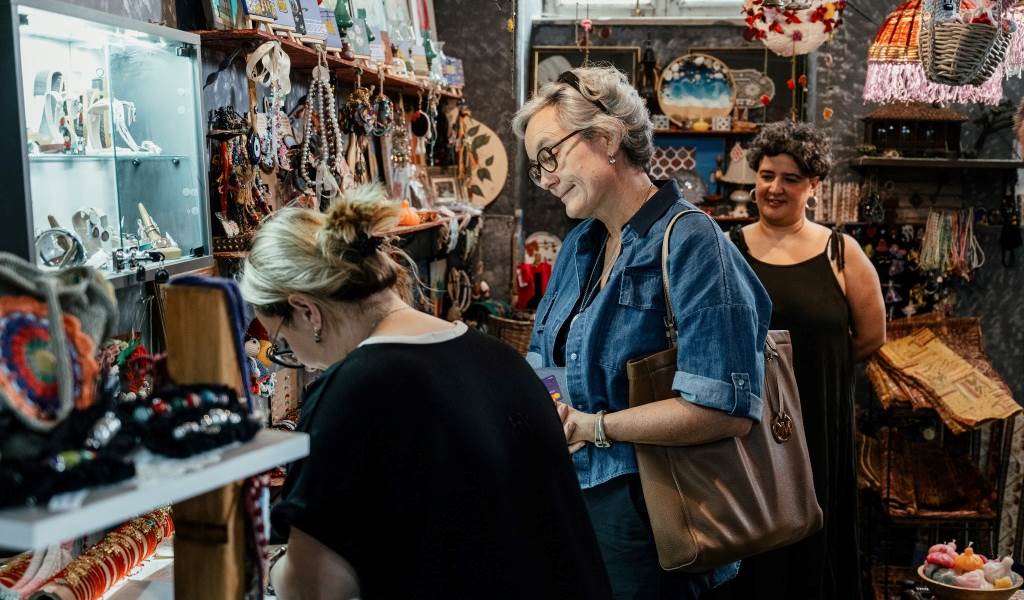Norwegian engagement in Georgia began in the 1990s with humanitarian aid to refugees and internally displaced persons (IDPs). This funding was channeled through organizations such as the Norwegian Refugee Council, which was active in Georgia from 1994 to 2016.
Norwegian development cooperation in Georgia has spanned a wide range of sectors — focusing on sustainable economic development, technical assistance, renewable energy, inclusive education, justice and democracy reforms, and cultural heritage. In total, Norway has contributed 1.2 billion NOK (approximately 325 million GEL) throughout the last three decades.

Below is an overview of key Norwegian-funded projects in Georgia
ENERGY AND ENVIRONMENT
Norwegian Directorate for Water Resources and Energy (NVE) (2017–2024)
NVE has collaborated with Georgian institutions on hydrology and hydropower development since 2012, with major phases in 2015 and 2017–2024. The cooperation aimed to build public sector capacity and increase awareness and expertise in renewable energy and hydropower, while supporting the development of legal frameworks to integrate Georgia into international energy markets. Norway contributed 37.7 million NOK to this project.
Statens Kartverk – Maps for Sustainable Development in Georgia (2017–2023)
This project developed up-to-date maps to support property registration and use by central and local governments and the private sector. It contributed to economic growth, poverty reduction, and the advancement of e-governance in Georgia. The project received 25.6 million NOK in funding.
Sustainable Hydropower in Georgia (2007–2015)
Norwegian institutions such as Akvaplan-niva (2007) and North Trøndelag Power Company (2010–2011) supported the development of hydropower and sustainable water resource use. This project received 9.1 million NOK in funding.
NILU – Norwegian Institute for Air Research (2006)
Supported the establishment of an EMEP monitoring site in Georgia to measure and analyze air pollution. This project received 1 million NOK in funding.
INCLUSIVE EDUCATION
Several projects have aimed to strengthen Georgia's education system, with a strong emphasis on inclusive education for persons with disabilities. Norwegian partners include the Ministry of Education and Research (2005, 2009–2011, 2013–2017). Statped (National Service for Special Needs Education), and international organizations such as the Norwegian Refugee Council (2002–2009), Danish Refugee Council (2014–2026), and UNICEF (2020–2023). The primary goal was to promote and protect the rights of children with special needs.
Danish Refugee Council – Inclusive and Fair Society in Abkhazia through Access to Education (2019–2022)
This project aimed to improve educational access in Abkhazia, fostering inclusion, fairness, conflict prevention, and civil peacebuilding. Norway provided 30.5 million NOK in funding.
UNICEF – Leaving No Child Out: Building Inclusive, Equitable, and Quality Education in Georgia (2020–2023)
Implemented in partnership with the Ministry of Education and Science and Statped, this program enhanced Georgia's inclusive education system, particularly for children with disabilities. Funded by the Norwegian government.
GOOD GOVERNANCE AND HUMAN RIGHTS
UNDP – LEAD Project (2022–2025)
The LEAD initiative supports institutional, legislative, and societal reforms to safeguard minority rights, combat discrimination, and foster collaboration between public agencies, civil society, and international partners. Norway contributed 43,5 million NOK to this project.
NORLAG – Capacity Building in Georgia’s Legal System (2004–2012)
This association of Norwegian and Georgian legal professionals contributed to criminal justice reform, strengthened the rule of law, and enhanced the capacities of Georgia’s city and supreme courts. Norway provided 28.3 million NOK in funding.
UN Women – Women’s Economic Empowerment (2009-2011, 2013-2015, 2017-2020, 2019-2023, 2023-2025)
The project promoted women’s economic rights and inclusion by supporting government policy, private sector involvement, and capacity-building for women. Norway contributed with 105,2 million NOK since 2009.
CULTURAL HERITAGE
Riksantikvaren – Institutional Cooperation in Cultural Heritage Management (2005–2019)
Since 2005, Riksantikvaren worked with Georgia’s National Agency for Cultural Heritage Preservation (NACHP) to strengthen heritage management and governance at national, regional, and local levels. Norway supported this long-term cooperation with approximately 10.5 million NOK.
PUBLIC HEALTH COLLABORATION
Since 2009, the University of Georgia and the University of Tromsø have collaborated on public health initiatives. Notable projects include:
Doctoral Programme in Public Health (2012–2015)
Georgian-Norwegian Collaborative in Public Health (GeNoC-PH) (2016–2022)
Both were funded by the Norwegian Centre for International Cooperation in Education and involved key partners such as UG, UiT, TSU, NCDC, CiTi, and UNICEF Georgia.